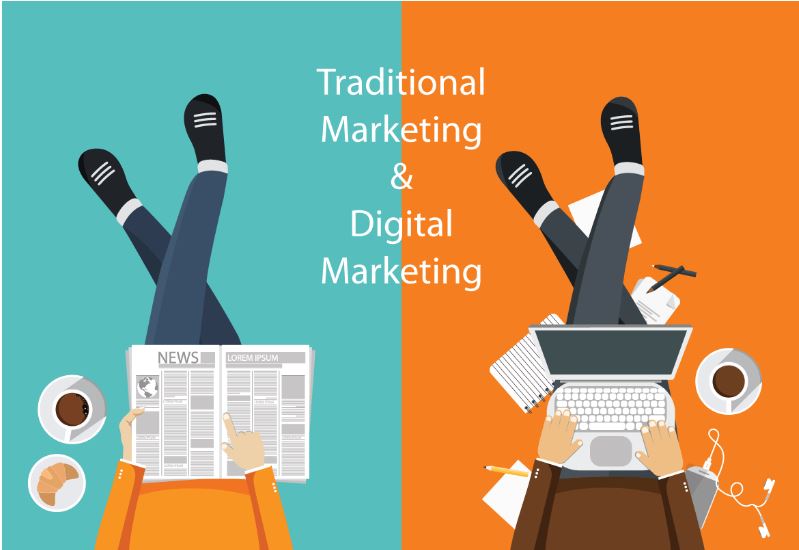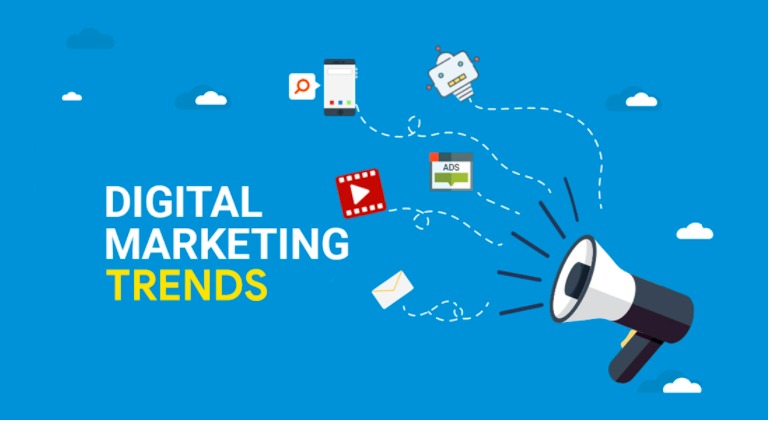Introduction
In today’s fast-paced digital age, transitioning from traditional to digital marketing is not just an option but a necessity for businesses aiming to stay competitive and relevant. This transformation, while challenging, opens up a myriad of opportunities for growth and engagement that traditional marketing methods simply cannot offer. This blog explores how traditional businesses can effectively transition into the digital landscape, the challenges they may face, and actionable strategies for a successful digital transformation. Leveraging the expertise of Dexpert Global in digital strategy and planning, we aim to guide businesses through this crucial shift.
The Importance of Digital Transformation
Digital transformation involves more than merely adopting new technologies; it signifies a fundamental change in how businesses operate and deliver value to their customers. It’s about integrating digital technology into all areas of business, resulting in profound changes in how businesses operate and how they deliver value to customers. Traditional businesses that embrace digital transformation can unlock new revenue streams, enhance customer satisfaction, and achieve operational efficiencies【30†source】【32†source】
Challenges of Digital Transformation
1. Cultural Resistance
One of the biggest hurdles is resistance to change within the organization. Employees accustomed to traditional methods may find it challenging to adapt to new technologies and workflows. Overcoming this resistance requires effective change management strategies and leadership commitment【33†source】.
2. Integration Issues
Integrating new digital tools with existing systems can be complex and may require significant time and resources. Ensuring that new technologies are compatible with legacy systems is crucial for a smooth transition【31†source】.
3. Data Management
Transitioning to digital means dealing with large volumes of data. Ensuring data accuracy, security, and compliance is crucial but challenging. Businesses must adopt robust data management practices to handle the influx of digital information【33†source】.
Actionable Strategies for Transition
Effective leadership is crucial for successful digital transformation. Leaders must communicate a clear vision, foster a culture of innovation, and lead by example. This includes being open to learning new technologies, adapting to new ways of working, and showing enthusiasm for the changes ahead. Clear and continuous communication about the purpose and benefits of the transformation is essential【30†source】.
1. Leadership and Vision
Effective leadership is crucial for successful digital transformation. Leaders must communicate a clear vision, foster a culture of innovation, and lead by example. This includes being open to learning new technologies, adapting to new ways of working, and showing enthusiasm for the changes ahead. Clear and continuous communication about the purpose and benefits of the transformation is essential【30†source】.
2. Customer-Centric Approach:
Digital marketing allows businesses to engage with customers on a more personal level. Utilizing data analytics, companies can tailor their marketing strategies to meet the specific needs and preferences of their customers. Personalization is a key advantage of digital marketing, enabling businesses to create more relevant and engaging content for their audience【32†source】.
3. Adopt Agile Methodologies:
Embracing agile methodologies can help businesses adapt quickly to changing market conditions and customer demands. Agile practices involve iterative processes, continuous feedback, and a focus on delivering value efficiently. This approach allows businesses to be more responsive and flexible in their marketing efforts【30†source】【32†source】.
4. Utilize Advanced Technologies:
Leveraging technologies such as AI, machine learning, and big data analytics can significantly enhance marketing efforts. These tools enable businesses to predict customer behavior, personalize marketing campaigns, and optimize their operations. For instance, AI can automate customer service interactions through chatbots, while big data analytics can provide insights into customer preferences and trends【31†source】【33†source】.
5. Foster a Digital Culture:
Creating a culture that embraces digital transformation is essential. This involves encouraging experimentation, tolerating failures as part of the learning process, and promoting an environment where employees feel empowered to contribute ideas and take initiative. Continuous learning and development opportunities should be provided to help employees acquire new digital skills【30†source】.
6. Invest in Training and Development:
Investing in training and development is crucial to ensure that employees are equipped with the necessary skills to navigate the digital landscape. This includes providing opportunities for employees to learn new digital skills, stay updated with the latest digital trends, and understand the implications of digital technologies in their roles【30†source】.
Dexpert Global's Expertise in Digital Strategy
At Dexpert Global, we specialize in guiding traditional businesses through their digital transformation journey. Our comprehensive digital marketing strategies are designed to address the unique challenges faced by traditional businesses and ensure a smooth transition to the digital landscape.
Customized Digital Strategies: We develop tailored digital marketing strategies that align with your business goals and target audience. Our approach ensures that your marketing efforts are effective and yield measurable results. By leveraging our expertise, businesses can create a strong online presence and reach their target audience more effectively.
Content Development: High-quality content is at the heart of successful digital marketing. Our team creates engaging and relevant content that resonates with your audience and drives engagement. From blog posts and articles to social media updates and video content, we ensure that your message is communicated effectively across all digital platforms.
SEO and Analytics: We optimize your online presence through advanced SEO techniques and data-driven insights, ensuring that your business ranks highly in search results and attracts the right audience. Our analytics services help you understand your audience better, track the performance of your campaigns, and make data-driven decisions to improve your marketing efforts.
Case Studies
1. Real Estate Company :
Before partnering with Dexpert Global, this company’s digital marketing efforts were inconsistent. Our tailored strategies significantly improved their online engagement and visibility, showcasing our ability to drive results in the real estate sector.
2. HR Consultancy:
Since partnering with Dexpert Global, this consultancy’s search rankings and online engagement have improved significantly. Their expertise in content creation and SEO has transformed our digital footprint, making them an invaluable partner for our HR consultancy needs.
3. Electric Vehicle Manufacturer:
Dexpert Global’s strategic content development and SEO efforts have significantly increased our brand visibility and customer engagement. Their innovative solutions have made a substantial impact on our growth in the electric vehicle industry.
4. Construction Company:
Dexpert Global has completely transformed our video creatives, making them more engaging and impactful. Their creativity and expertise in video production have greatly enhanced our brand presence in the construction industry.
Conclusion
Navigating the shift from traditional to digital marketing is a complex but rewarding journey. By embracing digital transformation, businesses can achieve sustained growth, enhanced customer satisfaction, and a competitive edge in the market. Dexpert Global is committed to guiding traditional businesses through this transition, leveraging our expertise to ensure their success in the digital era.
For more insights and personalized strategies, visit [Dexpert Global](http://dexpertglobal.com).
By following these strategies and leveraging Dexpert Global’s expertise, traditional businesses can effectively navigate the digital transformation journey and achieve lasting success. Embracing the digital age is not just about adopting new technologies but also about rethinking business models and processes to better serve customers in an increasingly digital world.





